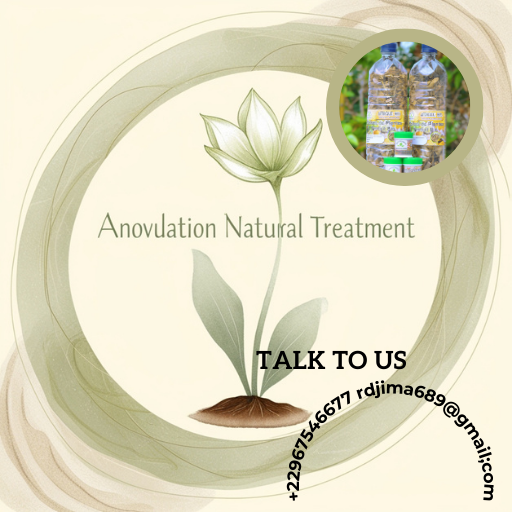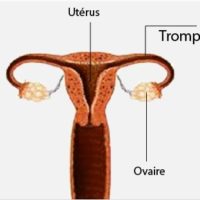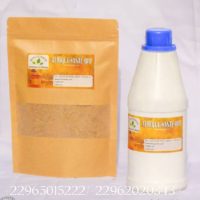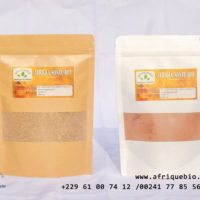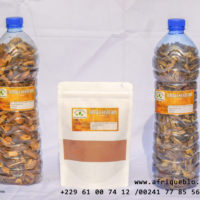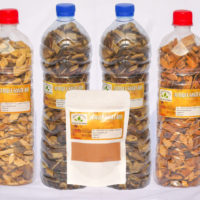Description
Click here to join us

Overview
Ovulation refers to the process in which an egg is released from the ovary, preparing it for potential fertilization. Anovulation, on the other hand, is a condition characterized by the absence of ovulation, which is a prevalent factor contributing to infertility.
This condition may arise due to a range of underlying issues, such as hormonal imbalances, abnormal body weight, or other medical conditions that impact the reproductive system.
The approach to treating anovulation is contingent upon its underlying cause and may involve lifestyle modifications, pharmacological interventions, or assisted reproductive technologies like in vitro fertilization (IVF) for individuals seeking to conceive.
How Ovulation Works: Anovulation Natural Treatment
Ovulation is a process where the brain releases hormones, including GnRH, which stimulates the pituitary gland to release follicle-stimulating hormone (FSH) and luteinizing hormone (LH). FSH stimulates ovary follicles, releasing estrogen, which builds the uterine lining for fertilization. LH surge releases the egg, which moves into the fallopian tube for fertilization.
Anovulation Meaning: Anovulation Natural Treatment
Anovulation refers to a reproductive system condition characterized by the failure of the ovaries to release an egg during the menstrual cycle. The absence of egg release prevents the possibility of fertilization. Prolonged or chronic anovulation may lead to infertility. While anovulation is frequently associated with irregular menstrual cycles, this is not universally the case.
Occasionally, bleeding may occur during anovulatory cycles, which may be mistaken for menstruation. However, such bleeding is typically irregular when it occurs in the context of anovulation.
Causes of Anovulation
Ovulation is a complex process involving glands, organs, hormones, and other chemicals that must be released in a specific sequence for ovulation to occur.
There are several underlying causes of anovulation, including:
- Abnormalities in hormone levels: Normal ovulation is influenced by a complex series of hormonal interactions, including abnormal levels of thyroid-stimulating hormone (TSH) and prolactin.
- Polycystic ovary syndrome (PCOS): PCOS is an ovaries-related disorder causing cysts and anovulation due to hormonal imbalances. It increases testosterone, causing small follicles in ovaries, instead of normal estrogen and progesterone levels.
- Age-related: Anovulation is a common cycle in menstruation and menopause, caused by hormonal imbalances during transitional periods.
- Weight-related: A 2016 study found that excessively low or overweight weight increases infertility risk due to disrupted hormone release, leading to irregular or anovulatory cycles, and can negatively impact pituitary gland function.
- Stress: High stress and anxiety levels can cause an imbalance in GnRH, LH, and FSH hormones, leading to ovulation issues and missed periods.
- Medications: Certain medications, like antipsychotics, can disrupt the menstrual cycle and affect ovulation, while hormonal birth control pills aim to inhibit or prevent ovulation.
- Genetic defects: Several single-gene mutations are thought to be associated with anovulation, particularly in people with polycystic ovaries.
The product: Anovulation Natural Treatment
Herbal Tea No. 373 is designed to help women who experience irregular menstruation and ovulation issues that are not organic. This herbal tea cleanses the woman’s genital tract, stimulates the ovaries, promotes ovulation, and helps regulate the menstrual cycle. It is especially beneficial for women dealing with infertility caused by the absence of ovulation. A three-month treatment with 10 sachets is recommended to regulate the menstrual cycle and improve the chances of conception.
Read also: Best Way to get pregnant over 40
TECHNICAL SHEET OF Anovulation Natural Treatment
weight 50g
Compositions: Plant extracts
Properties: Stimulant, depurative, immunoreconstituant, antioxidant, etc.
Active ingredients are Rich in organic phytosterols.
Presentation: Powder in a jar sachet or capsule
Instructions for use Read the instructions
indications Absence of ovulation, irregular menstrual cycle, female sterility, defect of cervical mucus, etc.
Side effects: None
Duration of treatment: three months renewable with 10 sachets
Unit price 30 euros
Price: 30 €
Read more about Endometriosis Natural Treatment
Therapeutic Effects of Anovulation Natural Treatment
Herbal Tea No. 373:Anovulation Natural Treatment is addressed with a complex combination of plants rich in phytosterols, stimulants, depuratives, immunoreconstituants, and antioxidants, aiming to facilitate ovulation and regulate the menstrual cycle for women.
Indications
Dirty and irregular painful rules, absence of ovulation, female sterility, lack of cervical mucus, etc.
Manual :
Read the instructions
NB: Allow three months of treatment for a problem of ovulation and infertility.
Manual :
Read the instructions
Good remedy in case of ovulation problems. The remedy facilitates ovulation and allows the woman to get pregnant rapidly. Please discover the herbal tea to make baby quickly.
Herbal tea 373 facilitates ovulation, regulates the woman’s menstrual cycle and promotes conception. The best remedy for having a baby. The remedy allows the woman to get pregnant rapidly. Please discover the herbal tea to make baby quickly.
Anovulation Symptoms
People who ovulate may have several signs that typically occur during each cycle, including:
- Regular periods (menstruation)
- An increase in cervical mucus
- A drop in resting body temperature around day 10 to 16 of the monthly menstrual cycle
The absence of these signs of regular ovulation may indicate that a person is not ovulating.
Diagnosing Anovulation
The absence of regular menstruation is the most apparent sign of anovulation. Some tests can be done to make a formal diagnosis, including:
- An ultrasound exam of the ovaries, uterus, and other pelvic organs
- A luteinizing hormone level test
- A progesterone-level test
- Other tests (such as blood tests or testing the lining of the uterus)
Lifestyle Changes
In certain situations, modifications to one’s lifestyle, such as adopting a balanced diet and engaging in regular physical activity, may be advised, particularly if an individual’s weight is impacting their anovulation.
For instance, an individual experiencing obesity may improve their ovulatory function through weight loss. Conversely, if a person is underweight and experiencing anovulation, nutritional guidance could assist them in achieving a healthier weight.
Physical activity aids in weight loss but can cause period problems when done excessively. Adjusting exercise intensity or choosing different types can help restore periods and ovulation cycles. Reducing stress can improve overall health and reestablish ovulation.
If you need advice write to us here
Medical Intervention
Some people who are not ovulating might benefit from trying different types of medication, depending on the reason they have stopped ovulating normally.
Medications that a doctor might prescribe for a person with anovulation include:
- Gonadotropins
- Clomiphene citrate (Clomid)
- Aromatase inhibitors
- Insulin sensitizing agents
Summary
Anovulation is a reproductive system condition where an egg is not released during the menstrual cycle, preventing fertilization. Treatment depends on underlying causes, such as underweight or polycystic ovary syndrome, which may require restoring nutrition or weight gain to resume ovulation.
